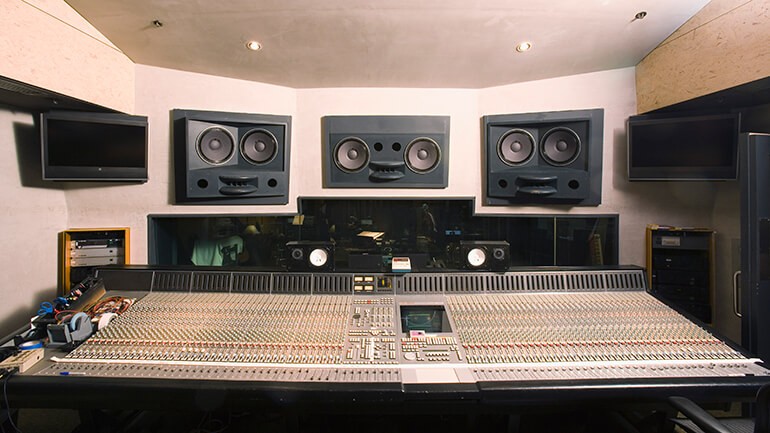Choosing a Studio for Hire
Whether fleshing out homemade foundation tracks or starting out from scratch, here’s what to consider when investing in a studio-for-hire, from mic inventory and other gear, to perhaps the most important attribute of all—a comfortable room and a calm engineer

Before the age of affordable home-studio recorders, making a decent demo meant finding the nearest purpose-built “professional” recording studio—generally smaller rooms with a fraction of the equipment and capability of those big-time facilities that were all but off-limits to those without a recording contract. The owner might be a jerk with a tin ear, but unless you had four grand for your own 8-track tape machine (!) you had to put up with it; if you were lucky, you got out of there without losing too much ego or money.
My how times have changed! Now anyone has the wherewithal to make a competent demo, or perhaps even a finished master suitable for public consumption. Though the playing field has become increasingly level, studios can still offer certain things that can’t be easily achieved at home, whether it’s simply a place to play without disturbing the peace, or the ability to produce a competently mixed recording based on years of practice.
Whether fleshing out homemade foundation tracks or starting from scratch, here’s what to look (and listen) for when investing in a studio-for-hire, including things like mic inventory, console and other gear, works by previous clients, as well as the most important attribute of all—a comfortable room and a calm engineer.
Choosing a studio. Like any service, you’ll want to start by considering what a prospective studio has to offer in terms of tools, space, and of course mixing/mastering acumen. For instance, a worthy facility is likely to offer complete mix automation running ProTools or other professional tracking platform, a full compliment of ribbon, dynamic and condenser microphones, quality EQ’s and microphone pre-amps, an ample supply of sound-processing plug-ins and peripherals, comfortable headphones that can be self-adjusted via a dedicated headphone amplifier, and other features.
But don’t just book a room based on visible bells and whistles; once you have a prospective studio in mind, listen to a sampling of music recorded in the facility to ensure that your own production values align with those of the owner/engineer.
Session costs. How much money you’ll spend for studio time depends on how much time you plan on spending there, of course, plus the location of the studio, size, reputation and various other factors. Some places will charge an hourly rate (anywhere from $35 to $75, or higher), and may also require a minimum amount of booking time (say, a four-hour session); others may offer a day rate, or perhaps a set fee per song or project. You’ll also want to know if there’s a separate charge for the recording engineer, including time spent on mixing, mastering, editing and other post-production activities.
The comfort factor. A supply of lovely Neumann microphones might seem impressive (it is), but a studio’s inventory list should just be a starting point. What about the recording room itself—can you picture yourself spending hours or days in this environment? Does the space have a cozy vibe, or is it somewhat sterile? A studio that prioritizes comfort is likely to have couches for relaxing in between takes, throw rugs/carpeting, soft and/or colored lighting, not to mention suitable heating/air conditioning.
The communication factor. A studio might appear to have all the right stuff, but if the in-house engineer has a reputation for, well, nastiness, you might as well pass. As we all know, recording can sometimes be a stressful experience, and when you’re having trouble getting the right take, the last thing you need is attitude coming at you through the control-room glass! Which is why it’s so important to have someone who is adept at both mixing and coaching, who instinctively knows when you should stop chasing the perfect solo or vocal take, and instead allows you time to regroup without crushing the vibe altogether.
So, is it all worth the investment? Particularly if you can do a fair amount of basic tracking ahead of time, entering a pro studio doesn’t have to be an uncomfortable or wallet-draining experience. On the contrary, taking a fleshed-out song or set of songs to a good facility with a smart, sensitive engineer can be just what you need to imbue your recordings with a professional sheen that may not have been attainable otherwise.






Community
Connect with BMI & Professional Songwriters